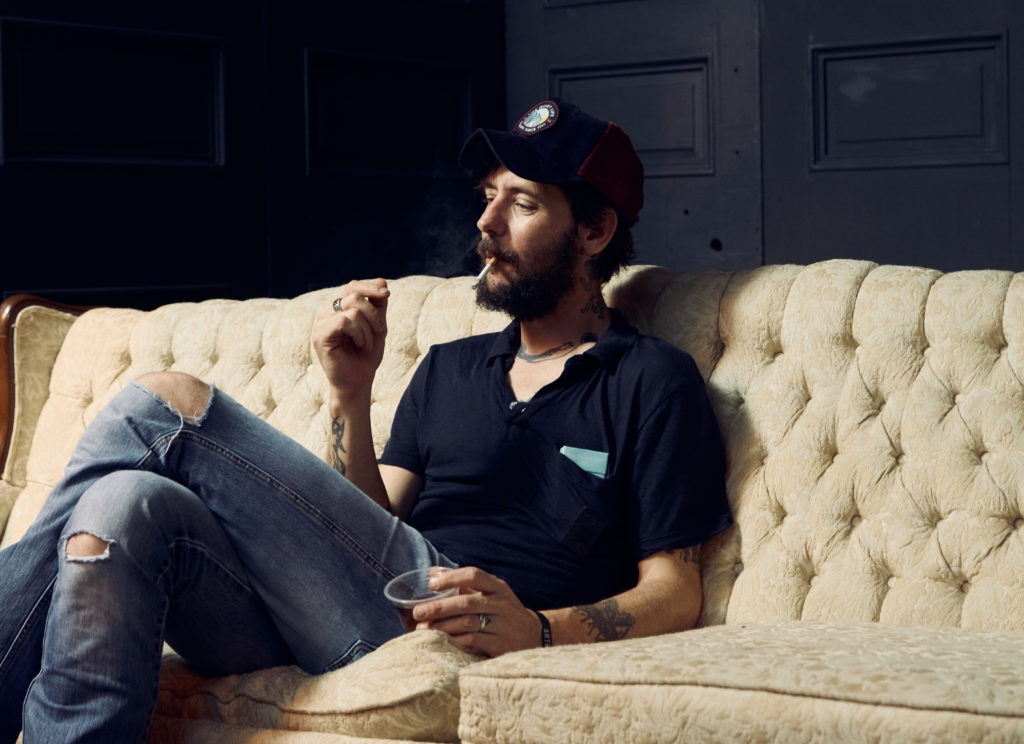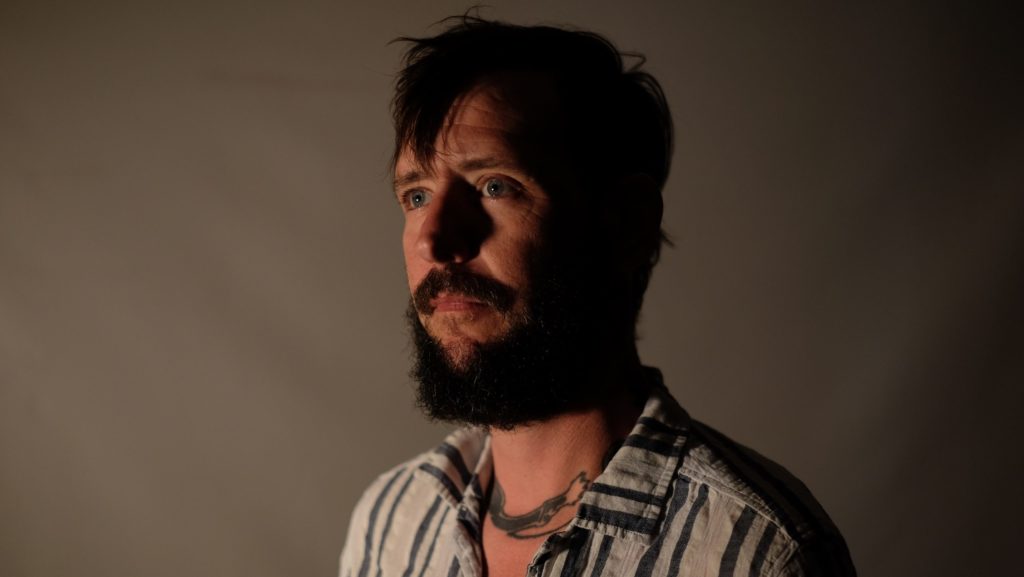It’s taken nearly two decades, but Band of Horses frontman Ben Bridwell finally feels he has the capacity — and the Goddamn right — to follow his creative intuition.
“Hopefully during this maturity process, I’ve learned to exert my own right in the band to say, ‘This is what the fuck we’re doing,’” Bridwell says of the long journey through Band of Horses’ history, one dotted with shifting lineups, various producers and a slew of record label deals. He pauses. “And I’m not going to listen to someone else’s fucking opinion, honestly. I’m tired of that.”
It’s this no-nonsense path forward that guided Bridwell and Band of Horses to Things Are Great. Their sixth album, out on March 4, as Bridwell explains, is as much a lesson in relieving himself of the pressure he’d built around himself throughout his career as it was in creating instantly hummable songs. To him, Things Are Great was about giving himself the freedom to sketch what the band would look like in the future. The songs they’d make. The lineup they’d have. Bridwell was, in essence, giving himself carte blanche to run the show.
“I don’t want the pressures of the industry to bog me down that I’m willing to let “Good enough’ happen anymore,” Bridwell says of his motivation for scrapping an entire Band of Horses album a few years ago, including switching producers and shuffling band members (“It was not easy,” Bridwell says. “These are friends of mine. You feel like you’re being a dick”) to finally arrive at a batch of songs he’s proud of.

“It just wasn’t good enough,” he adds of the first set of songs he scrapped. Bridwell explains that for a long time he felt he was playing a game of “metaphorical ballet” in his songs, or rather hiding behind cute wordplay for fear of hurting the feelings of those he was writing about in his music.
Scrapping that first incarnation of the album – which Bridwell jokingly refers to as “Things Aren’t Great” – led to Bridwell taking over production duties, albeit with the help of a close-knit team of collaborators that included Grandaddy’s Jason Lye, Flaming Lips’ producer Dave Fridmann, and local Charleston engineer Wolfgang “Wolfie” Zimmerman, whose work he had admired from afar. “I needed that injection of youthfulness,” he adds of his decision to work with Zimmerman. “But I also needed someone to let me be the boss, finally.” He laughs and adds: “I got to kick Wolfie’s ass around a bit.”
As he’s long done throughout Band of Horses’ career, Bridwell used the occasion of a new album to rid himself of his anxieties — or at least attempt to do so. “You don’t want help/You don’t need me/You don’t look well/And you don’t want anything,” he sings on the opening track, “Warning Signs,” a perhaps not-so-subtle reference to a divorce he casually mentions during our chat. Moments later, following the driving lead single “Crutch,” and over a slow-rolling guitar, Bridwell lays himself bare on “In The Hard Times”: “And it don’t make sense, but it’s the only choice left/Cause you deserted me in the hard times.”
“I gotta tell you, just to vent was important for me at that time when I was making this record,” Bridwell admits. He’d split from his now-ex-wife when writing the album, “and Lord knows, I needed an outlet to get some emotional darkness off of my shoulders,” he says. Bridwell was sick of hiding behind “all those cute metaphors” and “dancing around real talk. I’ve been through so much bad stuff, so for me, it’s very important just to get it all off my damn back.”
So much of what he’s relieving himself of, Bridwell offers, is the need to live up to some unrealistic standard. Around 2010, when the band was at its commercial peak after releasing that year’s Infinite Arms and being signed to Columbia Records, then headed up by superproducer Rick Rubin, Bridwell admits he felt an ungodly level of pressure.
“Looking back with some vantage, I would say I was absolutely caught in the whirlwind,” he admits. “Like, ‘OK, now you’re on a major label. There are expectations. And then all of a sudden you have a business manager, you have the lawyer. Everyone is taking a cut. It’s like ‘Shit, how the hell do we keep this thing going?’”

Thankfully for him, he’s since arrived at a more relaxed place in his career. He now feels like he doesn’t have to kowtow around a difficult subject, in song and in real-life, or spend his life appeasing others, but rather can drive the metaphorical bus in his career. Sure, Bridwell is still the first to admit that releasing a new record is about supporting his livelihood — the singer estimates he personally spent nearly half a million dollars to arrive at Things Are Great and, well, “my kids need new clothes at Target” — but it’s also an exercise in forever convincing himself he deserves it. “I always put my family’s livelihood on the line when I’m making these records,” he boldly admits. “It costs so damn much, dude.”
“I still don’t know how the hell I fell into this damn thing?” he wonders as he laughs. “In my mind, when I think of myself, I don’t see myself as a musician. I don’t see myself as an artist. I see myself as a kid who likes to make mixtapes for people. I did not mean to be all this … much less a singer. God damn.”
Above all, he hopes that the evolution he’s gone through both in his own life and with Band of Horses will inspire others. Or at least give them a sense of solace and camaraderie.
“Yes, we got led a little bit by the nose by the industry for a little bit there and probably went down a crooked path at times but man, I can tell you, the heart remains true in this band,” Bridwell says of Band of Horses. “I just hope this music translates to other folks to find some relief or release in their own lives.”

Leave a comment